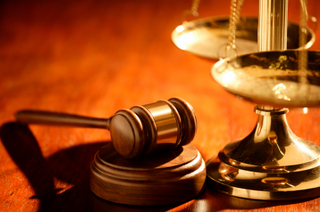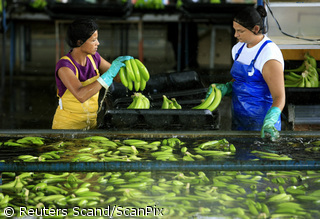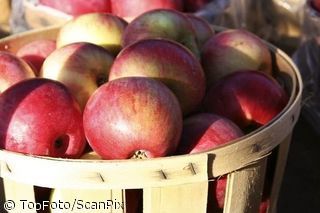The EU has decided to turn to Russia for some of its oil needs to reduce the continent's dependence on OPEC.
Published:
16 October 2000 y., Monday
A long-term agreement with Russia would benefit Europe by allowing it to diversify its energy sources, but it would also force EU officials into some difficult policy choices.
Russia has already indicated that its assistance would come at a price.
Russian deputy prime minister Viktor Khristenko told EU leaders in Brussels a few weeks ago that Russia wants its energy transit to bypass Ukraine. Russian officials widely suspect Ukraine of illegally siphoning off energy and pocketing the profit.
And Russian Deputy Foreign Minister Ivan Ivanov said earlier this week that Russia also wants the EU to drop its support for the Baku-Ceyhan pipeline, sponsored by the US and Turkey. The pipeline, if completed, would bypass Russia.
Observers call the EU proposal for energy cooperation with Russia the "Prodi plan," after European Commission president Romano Prodi. He was the first to present it to Russia.
The plan envisages a swap of Russian energy for EU assistance. It was largely worked out between Germany and the commission.
Russia has large energy reserves, but has little resources to exploit them. The export of gas and oil requires expensive transit facilities.
Under the Prodi plan, the EU would use its political influence and technical assistance to channel foreign investment into Russian energy transit. In return, Russia would guarantee the EU a significant supply of energy for the next 20 years.
Emerson says the EU is likely to promote an even-handed approach to transit routes, supporting the idea of multiple pipelines. This is borne out by the Commission's external relations spokesman Gunner Wiegand, who says the EU has no official strategic preferences. According to Wiegand, the deciding factors as to transit routes must be commercial viability, private sector interest and their multiplicity.
Yet the placing of transit routes has obvious geo-political implications.
Emerson says that while Russia and the United States are involved in what he called "great games" of strategy, the EU was not willing to view its choices in such terms.
The EU does not have a cohesive energy strategy at this stage, but has been prompted into formulating such a strategy by the recent rise in world oil prices and by widespread protests by citizens complaining about high taxes on fuel.
Šaltinis:
rferl.org
Copying, publishing, announcing any information from the News.lt portal without written permission of News.lt editorial office is prohibited.
The most popular articles
 The EBRD is increasing the availability of financing to the real economy in Hungary, with a €50 million credit line to CIB Bank, including at least €10 million equivalent denominated in Hungarian Forint.
more »
The EBRD is increasing the availability of financing to the real economy in Hungary, with a €50 million credit line to CIB Bank, including at least €10 million equivalent denominated in Hungarian Forint.
more »
 At the end of March 2010, AB Bank SNORAS deposit portfolio exceeded LTL 5 billion, of which over LTL 3 billion are household deposits.
more »
At the end of March 2010, AB Bank SNORAS deposit portfolio exceeded LTL 5 billion, of which over LTL 3 billion are household deposits.
more »
 In affirmation of Vietnam’s remarkable progress towards Middle Income Country status, the World Bank Board of Directors today approved a second loan for Vietnam from the International Bank of Reconstruction and Development (IBRD).
more »
In affirmation of Vietnam’s remarkable progress towards Middle Income Country status, the World Bank Board of Directors today approved a second loan for Vietnam from the International Bank of Reconstruction and Development (IBRD).
more »
 The World Bank today approved a EUR26 million loan to the Republic of Croatia aimed at further improving the efficiency of Croatia’s justice system − a necessary process in Croatia’s path towards successful European Union accession.
more »
The World Bank today approved a EUR26 million loan to the Republic of Croatia aimed at further improving the efficiency of Croatia’s justice system − a necessary process in Croatia’s path towards successful European Union accession.
more »
 The ACP-EU Joint Parliamentary Assembly asked the European Commission to help EU and ACP banana producers adapt to the new EU-Latin America trade agreement, which is expected to put an end to fifteen years of “banana wars” between the two continents, but has raised concerns for the livelihood of some regions' producers.
more »
The ACP-EU Joint Parliamentary Assembly asked the European Commission to help EU and ACP banana producers adapt to the new EU-Latin America trade agreement, which is expected to put an end to fifteen years of “banana wars” between the two continents, but has raised concerns for the livelihood of some regions' producers.
more »
 As seventeen of Africa’s 53 nations celebrate 50 years of independence in 2010, Africa’s “golden moment has come” and investors around the globe must look to the continent often painted only as risk-prone if they are to capitalize on business opportunities.
more »
As seventeen of Africa’s 53 nations celebrate 50 years of independence in 2010, Africa’s “golden moment has come” and investors around the globe must look to the continent often painted only as risk-prone if they are to capitalize on business opportunities.
more »
 During the ordinary general shareholders’ meeting of AB Bank SNORAS, which took place on 31st March 2010, the bank’s profit distribution was approved.
more »
During the ordinary general shareholders’ meeting of AB Bank SNORAS, which took place on 31st March 2010, the bank’s profit distribution was approved.
more »
 The EU is the world's largest economy, with enough international clout to return to "real capitalism" rather than resign itself to an alien "financial capitalism", concluded MEPs and experts at a public hearing held on Thursday by Parliament's special committee on the crisis.
more »
The EU is the world's largest economy, with enough international clout to return to "real capitalism" rather than resign itself to an alien "financial capitalism", concluded MEPs and experts at a public hearing held on Thursday by Parliament's special committee on the crisis.
more »
 Food quality and labelling are likely to be key issues when the Common Agriculture Policy is overhauled in the coming years.
more »
Food quality and labelling are likely to be key issues when the Common Agriculture Policy is overhauled in the coming years.
more »
 The European Investment Bank (EIB) is lending EUR 250 million to Russian company Enel OGK-5 to finance the upgrading of a gas fired power plant located in Nevinnomyssk, South Russia.
more »
The European Investment Bank (EIB) is lending EUR 250 million to Russian company Enel OGK-5 to finance the upgrading of a gas fired power plant located in Nevinnomyssk, South Russia.
more »